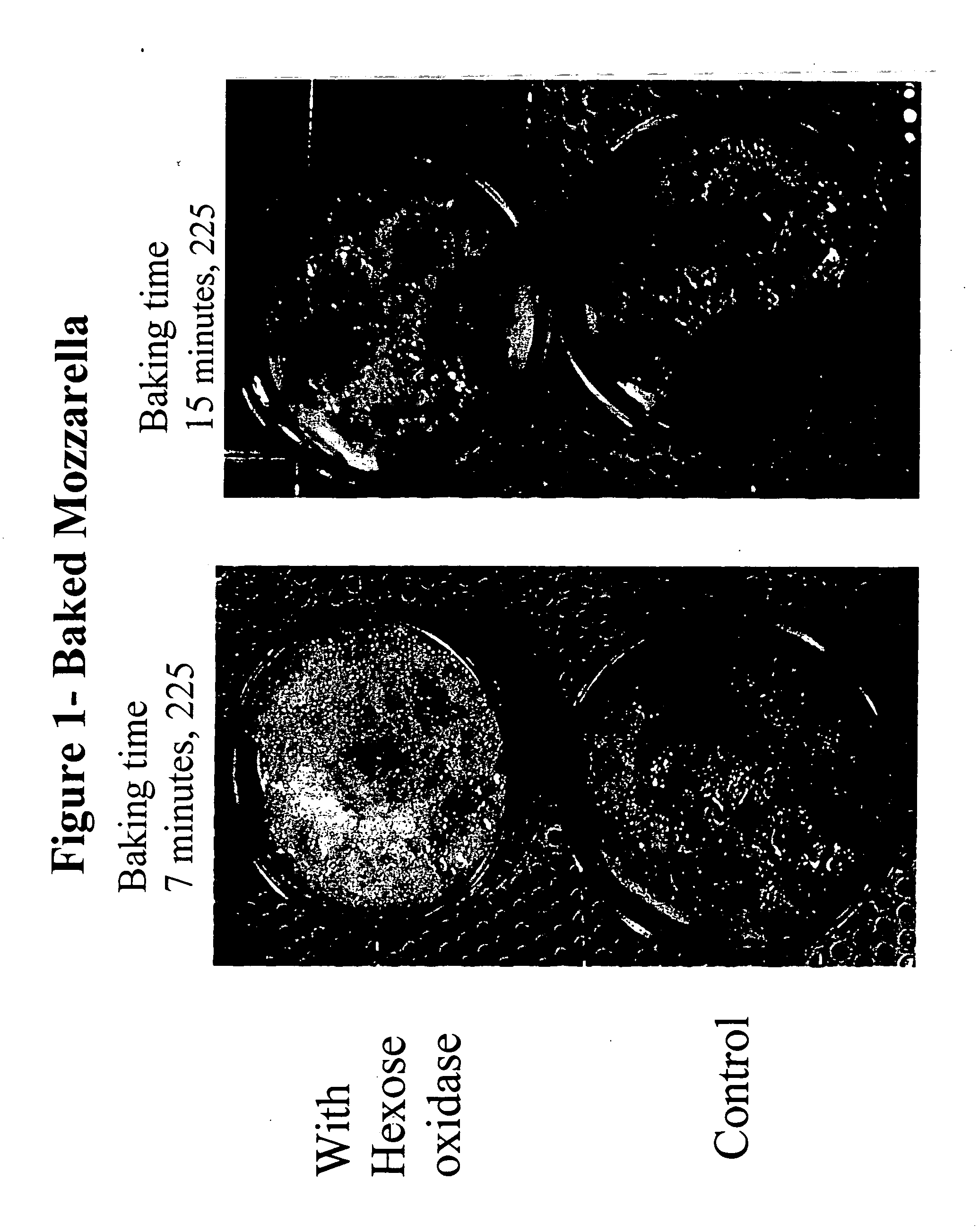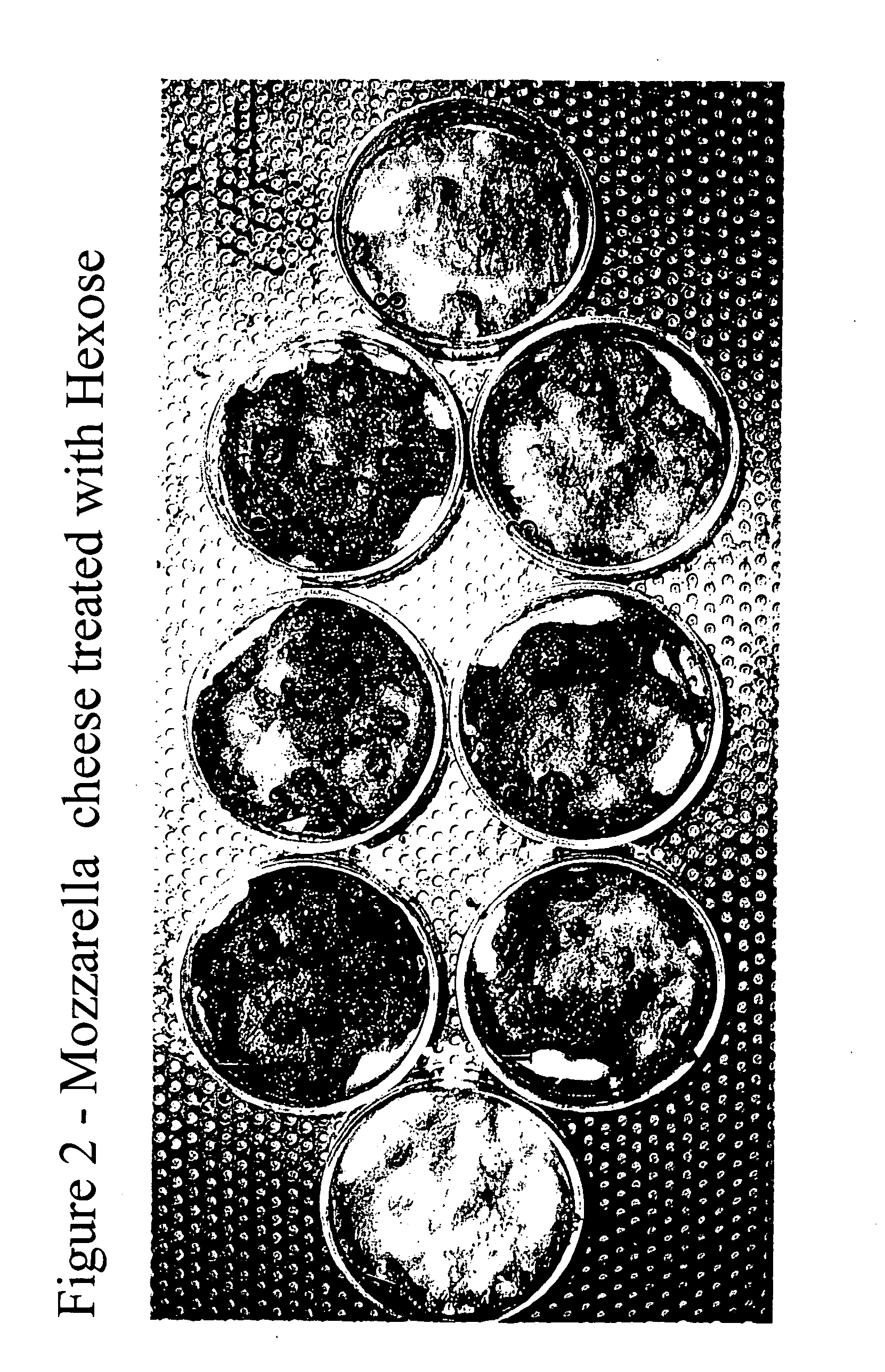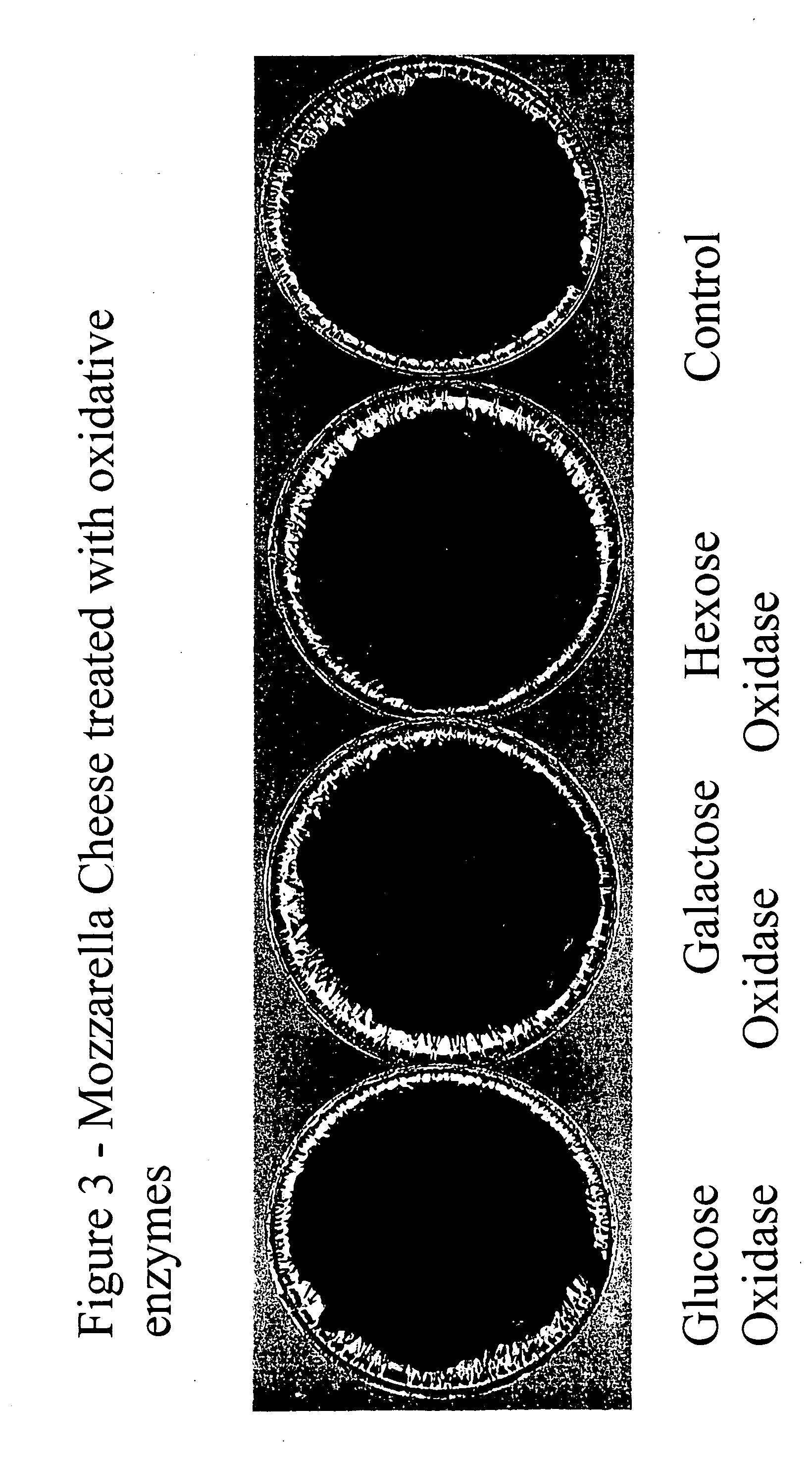Method
a technology of maillard reaction and food, applied in the field of control of maillard reaction in foodstuffs, can solve the problems of undesirable reaction, difficult control of browning reaction, and difficult control of maillard reaction
- Summary
- Abstract
- Description
- Claims
- Application Information
AI Technical Summary
Benefits of technology
Problems solved by technology
Method used
Image
Examples
examples
Image Analyses
[0076] Image analysis of the samples of the Examples was performed as follows.
[0077] Images of samples are recorded in calibrated non-scattering light intensity by a three chip CCD colour RGB video camera with a resolution of 440000 pixels (JVC KY-F58E). Calibration is done with Kodak's Gray Scale. Through computer based image analysis (Adobe Photoshop including Plug Ins) the images are prepared for quantitative colour measurement of the sample expressed as mean colour intensity of the whole sample, the mean colour intensity of the browned part of the sample and furthermore the relative area of the browned part is calculated. During browning of the sample the green colour intensity decreases significantly and browned areas are then defined as areas with green colour intensity less than 100. The total colour intensity range is from 0-255 (8 bit resolution), where 0 is no intensity and 255 is full intensity. The calibrated light intensity secures that measurements in ...
examples 1
Pizza with Mozzarella Cheese
[0080] 20 g mozzarella cheese (Karoline's Dansk mozzarella, 25% protein, 1% carbohydrate and 21% fat) was scaled in a beaker. 1 ml Hexose Oxidase solution (7.5 HOX units / ml) was sprayed onto the cheese. As a control 1 ml water was sprayed onto another sample of mozzarella cheese. The cheese was stored for 2 hours at room temperature. A dough was made from flour, salt and water. 10 g dough was scaled and placed in a petri dish. 5 grams of mozzarella cheese was placed on top of the dough and baked at 225° C. for 7 min. Another sample was baked for 15 min. After baking the samples were evaluated subjectively. The samples are shown in FIG. 1.
[0081] From this test it was clear that the application of hexose oxidase to the cheese reduced the tendency to brown as a result of reduced Maillard reaction. Moreover, in samples which were browned the present invention provided a more even brown colouring without black scorching.
example 2
[0082] Mozzarella cheese was treated in the manner listed in Table 1 using the procedure described in Example 1.
TABLE 1TestWater,HOXStorageStoragenoCheese, ggU / g cheesetime, hr.temperature, ° C.1301.3020202301.30.0120203301.30.052020430020205301.30.012056301.30.052057301.30.32058301.30.3205
[0083] After the treatment the cheese samples were placed on a dough and baked for 12 minutes at 225° C. After baking the samples were evaluated subjectively. The samples obtained are shown in FIG. 2.
[0084] The results show that 0.05 U HOX per g cheese is clearly sufficient reduce the browning of the cheese stored at 20° C. The results also shows that the browning is reduced even if the cheese treated with HOX is stored at 5° C.
PUM
 Login to View More
Login to View More Abstract
Description
Claims
Application Information
 Login to View More
Login to View More - R&D
- Intellectual Property
- Life Sciences
- Materials
- Tech Scout
- Unparalleled Data Quality
- Higher Quality Content
- 60% Fewer Hallucinations
Browse by: Latest US Patents, China's latest patents, Technical Efficacy Thesaurus, Application Domain, Technology Topic, Popular Technical Reports.
© 2025 PatSnap. All rights reserved.Legal|Privacy policy|Modern Slavery Act Transparency Statement|Sitemap|About US| Contact US: help@patsnap.com



